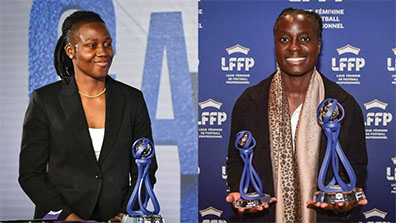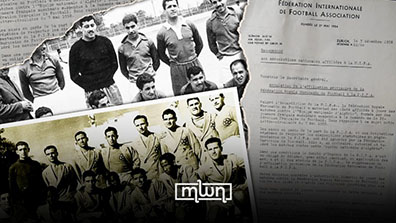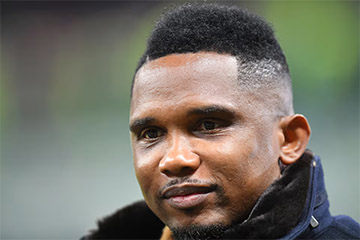International Football
Confederations Cup: Late Goals Rob Cameroon of Points
Cameroon will have to overcome Australia to have a realistic chance of making it to the semi-finals of the FIFA Confederation Cup.
The 0-2 loss to Chile on Sunday has condemned the African flag bearer to zero option when they take on the Australians on Thursday before a potentially explosive last group match with World Cup champions, Germany next Sunday.
Late goals from Arturo Vidal and Eduardo Vargas gave Chile all three points in a 2-0 win over Cameroon in their opening match in Group B at the Spartak Stadium in Moscow in front of a crowd of 33,492.
It was Chile’s first appearance at the Confederation and thus became the sixth of the 10 South American countries to feature.
The South Americans had a goal disallowed at the closing stage of the first half when Eduardo Vargas’ effort was annulled by the video assistant referee which called it back as the Tigres UANL forward was in an offside position.
Alexis Sanchez came off the bench in the second half, and the Arsenal forward made an impact when his cross found Vidal, who leapt to head in La Roja‘s winning goal in the 81st minute.
Vargas eventually got his goal, when he scored on a second-chance opportunity after Sanchez had weaved around Cameroon’s defence and his shot was blocked and eventually fell to Vargas who made no mistake from close range.
According to a FIFA team reporter’s analysis, “experience made all the difference for the Indomitable Lions.
“Nervous during the first half, making too many fouls and losing the ball too quickly, the Cameroonians had a big fright before half time but were saved by the VAR.
That emotion seemed to free them from the stress during the second half, but ultimately they were punished by two late goals.”
Another view of the match by a Cameroonian reporter, Pascal de Miramon, has it that: “Chile played a solid first match against a very strong, defensive team.
They were in the driving seat throughout most of the game, controlling the ball and creating a quality amount of chances. Coach Juan Pizzi played an important role, as his substitutions helped Vidal offensively, and that paid off near the end when ‘King Arturo’ showed up in the six-yard area to head in the winning goal for a well-deserved win for La Roja.”
International Football
Nigeria’s Nnadozie, Malawi striker, Chawinga scoop top awards in France

Malawi striker Tabitha Chawinga and Chiamaka Nnadozie of Nigeria have been named the best player and best goalkeeper respectively in the French women’s league.
Chawinga wasted no time in making an impact upon her arrival in France after joining Paris Saint-Germain from Inter Milan in less than one year.
The Malawi captain joined PSG in the summer of 2023 and has quickly showcased her talent, resulting in the top award on Monday night.
She played 25 matches, scoring 18 goals and providing 10 assists while donning the iconic red and blue jersey.
As a semifinalist in the UEFA Women’s Champions League, PSG’s number 22 became the first Malawian to score a goal in a European competition.
Meanwhile, Nnadozie has had an exceptional season with Paris FC which had led to dethrone Christiane Endlerthe – long standing best goalkeeper in the French women’s top-flight.
The Nigerian goalkeeper boasts 10 clean sheets in 28 appearances in the French league.
For the first time in her career, Nnadozie has been recognized in this category, ending the dominance of Endler, who was named the best goalkeeper in the French league from 2019 to 2023.
Chawinga and Nnadozie’s achievements highlight the growing influence of African players abroad as their performances will pave the way for future generations of footballers from the continent to shine on the global stage.
International Football
What a twist of fate! Before now, Morocco and Algeria were allies

Despite Morocco’s historical solidarity with Algeria, the regime continues to politicize sporting events in search of opportunities to undermine Morocco’s territorial integrity.
Algeria continues to push with its obsessive tendency to undermine Morocco’s territorial integrity despite the country’s long-standing solidarity with its National Liberation Front (FLN) in international sporting events.
Last week, the Algerian regime confiscated the jerseys of a Moroccan club RS Berkane ahead of a CAF Confederation match in Algeria due to the fact that they featured a full map of Morocco.
The decision drew outrage from Moroccans and international observers who decried Algeria’s politicizing of sporting events and its constant search for opportunities to undermine Morocco’s territorial integrity.
On Saturday, Algerian journalist and political analyst, Oualid Kebir, took to social media exposing the regime’s disregard for Morocco’s historical support for the Algerian FLN in international sporting events.
Kebir highlighted Morocco’s “heroic” and “strong supportive stances” during Algerian’s challenging times during French occupation. “Morocco’s historical and heroic stance at that time is added to the honorable and strong supportive stances at that time towards Algeria,” the post read.
Kebir’s statement referred to Morocco’s Royal Football Federation (FRMF) organizing a match in 1958 against the FLN team despite the fact that the team was not recognized by FIFA. The team consisted then of French Muslim (Algerian) players who had been suspended by the French Football Federation.
FIFA’s justification at the time for punishing Morocco was due to the licensing of the FRMF clubs to play against the FLN team.
“Today, the military regime disguises ingratitude and compels Algerian clubs and sports teams to refuse to play and confront their Moroccan counterparts who display the map of Morocco on their jerseys!” Kebir wrote, decrying Algeria’s ungratefulness to Morocco’s historical support.
“This is the reward for standing with us during difficult times?!” he stressed.
Attached to the post was the official document from FIFA outlining its decision to revoke the affiliation of the FRMF due to Morocco’s authorization of its clubs to play matches against the Algerian national team, despite FIFA’s objections.
Algeria’s blatant attacks on Morocco’s sovereignty have especially peaked over the past days with the country staunchly attempting to politicize yet another sporting event.
One such event occurred during the Arab Championship this week, where the Algerian U-17 national handball team withdrew in protest of Morocco’s jersey featuring a full map of Morocco that includes its southern provinces.
After the Confederation of African Football (CAF) announced RS Berkane to be the winner of the Sunday match, Algeria relentlessly appealed the decision, losing the appeal in the process.
However, the regime announced that they would take their case to a higher court, alleging that the jerseys include a political symbol.
In January 2023, Algeria orchestrated a similar attack on Morocco through the African Nations Championship (CHAN). During the tournament, the Algerian regime denied the Moroccan team the right to participate and defend their title, while using the tournament’s opening ceremony as a political platform to express support for the Polisario Front.
-Morocco World News
International Football
Grudgingly, Eto’o accepts new Cameroon coach Brys, but fails to attend ceremony

Cameroon’s new coach Marc Brys penned a contract on Monday but the Belgian’s appointment by the government remains contentious as the football federation did not attend the signing ceremony.
Brys has been handed a 2-1/2-year contract by Cameroon’s sports ministry but the federation (FECAFOOT) was conspicuous by its absence at the event in Yaounde.
Last week, FECAFOOT criticised the unilateral decision of sports minister Narcisse Mouelle Kombito to appoint the 61-year-old Brys, who has no prior experience as a national team coach and has not previously worked on the African continent.
FECAFOOT president Samuel Eto’o issued a statement on Monday, excusing himself from the unveiling event.
“We thank you for inviting us to the ceremony. Following this, we inform you of the fact that we received the letter two hours before the said ceremony,” wrote Eto’o.
“Unfortunately, we are busy organising the funeral of our late Dad, and for this reason we will not be able to attend presence at the ceremony.”
His father’s funeral is to be held at the weekend.
Eto’o balked at Brys’ appointment and is now in a deepening standoff with the minister.
In Cameroon, the government has long paid the salary of the national team coach and therefore held powerful sway over FECAFOOT’s affairs, even if such state interference is frowned upon by world football’s governing body FIFA.
Any heightened dispute risks a potential ban from international competition for Cameroon, one of the heavyweights of African football.
FECAFOOT held an emergency meeting on Saturday and asked Eto’o to propose an alternative coach for the national team.
Earlier on the weekend, the minister had defended the appointment, saying he had acted in accordance with national and international regulations.
In a letter to FECAFOOT, Kombi said his ministry’s appointment of coaching staff “in no way affects the autonomy of FECAFOOT and does not violate any of the ‘supranational regulations”.
He said FECAFOOT had suggested three candidates to the ministry but their salary demands ranged between 1.5 million euros and 2.5 million euros ($1.63 million and $2.71 million) per year.
“These are excessive amounts never paid to any coach in the history of the Indomitable Lions,” Kombi said.
-Reuters
-

 Nigerian Football5 days ago
Nigerian Football5 days agoNFF cuts Enyimba’ point haul by two
-

 Boxing7 days ago
Boxing7 days agoNigeria sports minister set for ’bout’ with Bash Ali
-

 Nigerian Football6 days ago
Nigerian Football6 days agoFinidi George becomes Nigeria’s 41st national coach
-

 Nigerian Football1 week ago
Nigerian Football1 week agoRemo Stars close to winning their first Nigeria Premier League title
-

 Governing Bodies1 week ago
Governing Bodies1 week agoWhat FIFA frowns at in Africa holds in Spain as government takes over FA
-

 Premier League1 week ago
Premier League1 week agoIheanacho, Ndidi back in Premier League as Leicester City get promotion
-

 World Cup17 hours ago
World Cup17 hours agoSouth Africa may field Nigerian against Nigeria in World Cup qualifier
-

 CAF Confederation Cup6 days ago
CAF Confederation Cup6 days agoBREAKING! RS Berkane – USM Alger Confederation Cup return match is called off



